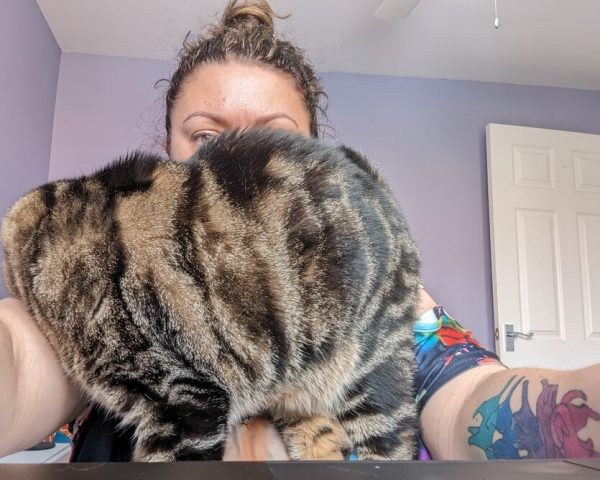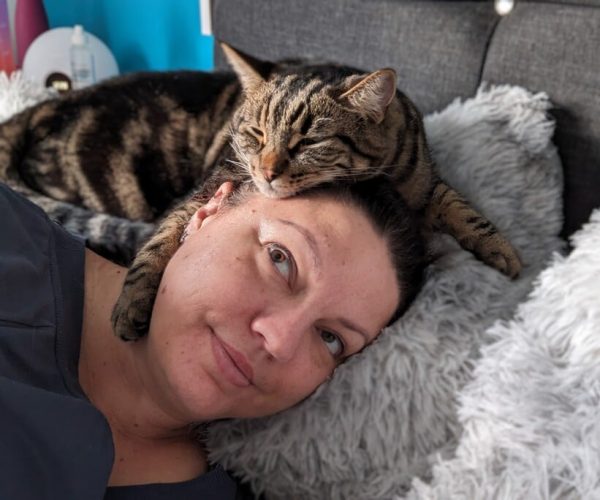As I’m sure many of you know, one of the very few positives to come from the COVID-19 lockdowns is a greater appreciation for flexible work environments. Even as a vet, when it comes to my writing and research, I’m able to complete my work from the comfort of home, at a time that suits me, fluffy slippers firmly in place.
There is one minor challenge to this delightful arrangement, and his name is Cyril. My squishy, lazy, cartilaginous cat Cyril is most happy when his comfort results in my inconvenience, or so it seems.
Cyril: The King of Inconvenience

I’m sure many of you have experienced the frustration of the cat that ignores you 90% of the time, until you are doing something that requires your full attention. Suddenly, your computer keyboard becomes the most appealing spot in the house, and people have been known to use the plastic stand their laptop was supposed to be sitting on, to keep their hands free of feline interference. This phenomenon is so widespread that these stands are now marketed for this exact purpose—a perfect example of identifying a niche market!
Now don’t get me wrong, I love that Cyril enjoys my company, and his affection is very much appreciated. What I do find frustrating, however, is the fact that he seems to be able to pinpoint exactly when his loving advances will be least convenient.
If I’m looking at my phone, he must sit on my chest. If I’m reading a book, he’s suddenly on my head! And when I’m trying to work, well, that is the time that he must shower me with smooches and rubs and affectionate nibbles.

Working from Home With a Cat (and Giving in to the Loveable Rebellion)
Not too long ago, I wrote an article about how intelligent cats are—short answer: very. Many people say that dogs show their intelligence by how easily they can be trained, which is true.
Cats, on the other hand, appear to have worked out that they can still get what they want without doing what we ask them. They have an almost rebellious intelligence, whereby they assess a situation, identify the simplest, most convenient action, and defiantly do the exact opposite; and we love them for it! Just ask the millions of people around the globe who are currently stuck in sofas and chairs, unable to move due to feline paralysis. No matter how infuriating their behavior, we cannot get enough of being taunted by cats.
So, do I push Cyril away when I’m trying to work? Do I lock him out of the office or yell at him to leave me alone? Of course, I don’t. I buy a sodding cat platform for my keyboard. Obviously.







